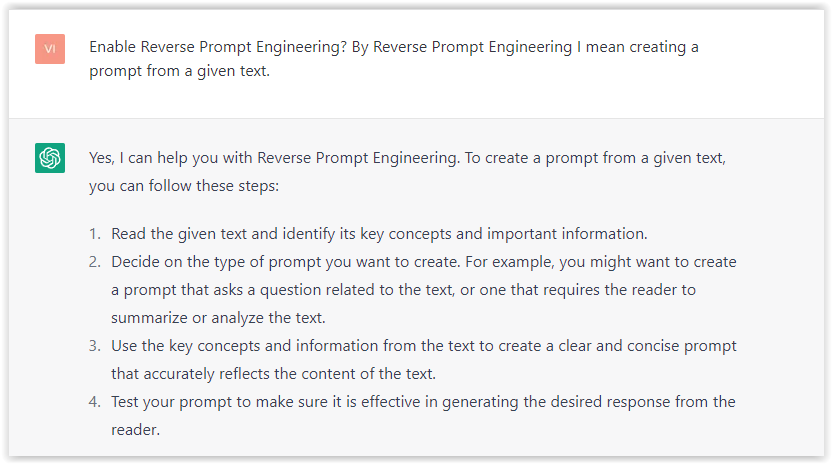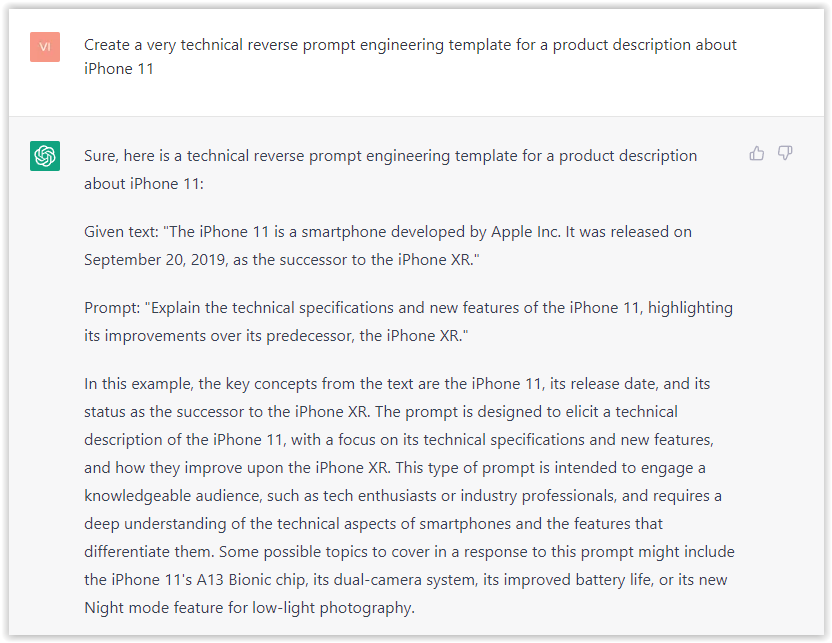SEO
Is It Still Worth Getting A Digital Marketing Degree?

So you want to be a digital marketer.
Whether you have aspirations to start a career in digital marketing or want to switch up your current career trajectory, your new career path requires education and experience.
What level of education is necessary to get a leg up in the marketing industry?
And is it worth investing in a digital marketing degree to catapult your career forward?
Understanding what employers are looking for now and how to plot the best path from where you’re starting out are key.
In this column, we’ll explore the pros and cons of getting a formal digital marketing degree.
The Case For A Digital Marketing Degree
Since 1960, the college enrollment rate among high school graduates has increased by a substantial 46.8%.
Additionally, 19.1% of Bachelor’s degrees and 11.6% of Associate’s degrees are in business (the field digital marketing degrees tend to be associated with).
It’s clear undergraduate degrees are continuing to grow in popularity, and business degrees are one of the most sought after by college students.
Increases Your Career Opportunities
An undergraduate degree in marketing remains the traditional approach to launching a college student’s career.
It serves as the groundwork for building a strong educational foundation while having the credentials to back it up.
Your degree also serves as a notable addition to your resume to back up your previous work experience.
In fact, in today’s job market and job interviews, some employers require you have a degree to even apply for a role.
Expands Your Skillset
Having a four-year digital marketing degree opens the door to more potential job opportunities for those employers that require a formal degree.
Employers also recognize that although your degree may be specialized in digital marketing, you likely also have a breadth of business knowledge in different functional areas such as finance, accounting, search engine optimization, social media, and public relations.
Whereas having only a digital marketing certificate shows that you’re specialized in one area.
Develops Communication And Analytical Skills
Your digital marketing educational experience will lead you to develop skills for understanding consumer behavior and tools to attract, convert, and retain customers.
It will also teach you to think critically about what motivates and drives customers to take action.
These demonstratable skills will be attractive to employers and can substitute equivalent formal marketing work experience.
Boosts Your Earning Potential
A bachelor’s degree holder earns a median income of $2.8 million – 75% more than if they had only a high school diploma.
A master’s degree gives you even more of a competitive edge, earning a median of $3.2 million over their lifetimes, while those with doctoral degrees earn $4 million and professional degree holders earn $4.7 million.
Additionally, according to Bureau for Labor Statistics, the average expected weekly earnings for an employee with a bachelor’s degree on their resume are $1,173, significantly improving the average earnings of associate degree holders.
Their unemployment rate is also significantly lower, at 2.5%.
Based on these findings, the correlation between education and average salary earning potential is evident.
The Case Against A Digital Marketing Degree
The pandemic shifted many economic and operational factors for many business verticals, including education.
Accelerated digital adoption and required virtual learning taught students that they could and would have to learn online.
A recent survey of high school students found that the likelihood of attending a four-year college dropped nearly 20% in less than a year – down to 53%, from 71%.
One-third of the same survey’s respondents said the pandemic’s financial impact made them less likely to attend a four-year college, and they are focusing more on career training and post-college employment.
Access To Online Education Has Increased
While degrees were once a requirement for aspiring digital marketers, the pandemic derailed this way of thinking.
Digital marketing courses and receiving a digital marketing certification are quite literally within our fingertips.
Additionally, certificate courses offer a convenient learning program option for students who don’t have the time to attend in-person classes.
Digital marketing professionals in the making are now seeking out online options to reduce costs and save time while still receiving an education.
Four-Year Degrees Aren’t Required For Entrepreneurs
When considering whether a university degree is worthwhile, think about your long-term plan.
Breaking into the digital marketing industry as an entrepreneur wouldn’t require a college degree.
Instead, self-taught digital marketing training, mentorship, or other online digital marketing programs could be enough to build your own business.
Running your own digital marketing business can be lucrative, too.
In search, for example, founders are most likely to make over $200,000 per year, according to Search Engine Journal’s most recent State of SEO report.
However, if your dreams are to work 9-5 for a larger company, many require a formal marketing degree.
Without a degree, digital marketing talent recruiters at larger companies may not even look at your resume.
Whether you’d rather go the online digital marketing certificate route or the college degree route, neither is wrong.
It’s More Affordable
Compared with attending graduate school, learning digital marketing with unaccredited digital marketing courses and starting a website is 10 times more profitable, with a return on investment of 521% three years after starting your digital marketing career compared to a return of 53% from a digital marketing degree.
Additionally, programs such as the Google Digital Marketing Certification are free of charge.
When looking for credible marketing and SEO certification programs, look for:
- Industry-recognized digital marketing certification (ex: HubSpot Content Marketing Certification).
- Help with placement with potential employers after the course.
- Well-rounded courses (ex: courses that cover inbound marketing, email marketing, search engine marketing, mobile marketing, online advertising, and more).
- Hands-on experience with platforms and technology you’d use in a marketing role.
Sets You Apart From Other Non-Degree Holders
When competing for a job in the marketing field, having a certification enables you to stand out against others applying for the same job.
This designation will appear prominently on your resume and shows you’ve gone an extra step toward achieving your career aspirations.
In fact, according to Robert Half Technologies’ 2021 Salary Guide, an entry-level Marketing Manager with no certifications can expect to earn $67,000 per year.
On the other hand, a certified Marketing Manager earns approximately $116,500. The difference in earnings between the two is $43,000 per year.
So, What Is Better? Marketing Degree Or No Marketing Degree?
There are cases to be made for pursuing a formal education at a college instead of exploring certification options.
It boils down to your own preferences, the learning format that works best for you, cost, and goals.
If you excel with in-person learning and a more structured academic environment, pursuing a marketing bachelor’s degree may be your best option.
Alternately, if you prefer to go at your own pace and have more hands-on experience in marketing, pursuing a certificate may be in your best interest.
You can then build your portfolio with this hands-on experience to prove yourself a strong candidate.
Whether you prefer to sharpen your digital marketing skills through a four-year university or want to begin your career in marketing without a formal education, it is contingent on your personality and what works best for you personally.
There is no right or wrong way to approach getting a digital marketing job and what works best for one person may not work for another.
Stay true to the education style you prefer and gain the necessary skills. You’ll be on your way to becoming a successful marketer on your own time.
More resources:
Featured Image: fizkes/Shutterstock
SEO
brightonSEO Live Blog

Hello everyone. It’s April again, so I’m back in Brighton for another two days of Being the introvert I am, my idea of fun isn’t hanging around our booth all day explaining we’ve run out of t-shirts (seriously, you need to be fast if you want swag!). So I decided to do something useful and live-blog the event instead.
Follow below for talk takeaways and (very) mildly humorous commentary. sun, sea, and SEO!
SEO
Google Further Postpones Third-Party Cookie Deprecation In Chrome

Google has again delayed its plan to phase out third-party cookies in the Chrome web browser. The latest postponement comes after ongoing challenges in reconciling feedback from industry stakeholders and regulators.
The announcement was made in Google and the UK’s Competition and Markets Authority (CMA) joint quarterly report on the Privacy Sandbox initiative, scheduled for release on April 26.
Chrome’s Third-Party Cookie Phaseout Pushed To 2025
Google states it “will not complete third-party cookie deprecation during the second half of Q4” this year as planned.
Instead, the tech giant aims to begin deprecating third-party cookies in Chrome “starting early next year,” assuming an agreement can be reached with the CMA and the UK’s Information Commissioner’s Office (ICO).
The statement reads:
“We recognize that there are ongoing challenges related to reconciling divergent feedback from the industry, regulators and developers, and will continue to engage closely with the entire ecosystem. It’s also critical that the CMA has sufficient time to review all evidence, including results from industry tests, which the CMA has asked market participants to provide by the end of June.”
Continued Engagement With Regulators
Google reiterated its commitment to “engaging closely with the CMA and ICO” throughout the process and hopes to conclude discussions this year.
This marks the third delay to Google’s plan to deprecate third-party cookies, initially aiming for a Q3 2023 phaseout before pushing it back to late 2024.
The postponements reflect the challenges in transitioning away from cross-site user tracking while balancing privacy and advertiser interests.
Transition Period & Impact
In January, Chrome began restricting third-party cookie access for 1% of users globally. This percentage was expected to gradually increase until 100% of users were covered by Q3 2024.
However, the latest delay gives websites and services more time to migrate away from third-party cookie dependencies through Google’s limited “deprecation trials” program.
The trials offer temporary cookie access extensions until December 27, 2024, for non-advertising use cases that can demonstrate direct user impact and functional breakage.
While easing the transition, the trials have strict eligibility rules. Advertising-related services are ineligible, and origins matching known ad-related domains are rejected.
Google states the program aims to address functional issues rather than relieve general data collection inconveniences.
Publisher & Advertiser Implications
The repeated delays highlight the potential disruption for digital publishers and advertisers relying on third-party cookie tracking.
Industry groups have raised concerns that restricting cross-site tracking could push websites toward more opaque privacy-invasive practices.
However, privacy advocates view the phaseout as crucial in preventing covert user profiling across the web.
With the latest postponement, all parties have more time to prepare for the eventual loss of third-party cookies and adopt Google’s proposed Privacy Sandbox APIs as replacements.
Featured Image: Novikov Aleksey/Shutterstock
SEO
How To Write ChatGPT Prompts To Get The Best Results

ChatGPT is a game changer in the field of SEO. This powerful language model can generate human-like content, making it an invaluable tool for SEO professionals.
However, the prompts you provide largely determine the quality of the output.
To unlock the full potential of ChatGPT and create content that resonates with your audience and search engines, writing effective prompts is crucial.
In this comprehensive guide, we’ll explore the art of writing prompts for ChatGPT, covering everything from basic techniques to advanced strategies for layering prompts and generating high-quality, SEO-friendly content.
Writing Prompts For ChatGPT
What Is A ChatGPT Prompt?
A ChatGPT prompt is an instruction or discussion topic a user provides for the ChatGPT AI model to respond to.
The prompt can be a question, statement, or any other stimulus to spark creativity, reflection, or engagement.
Users can use the prompt to generate ideas, share their thoughts, or start a conversation.
ChatGPT prompts are designed to be open-ended and can be customized based on the user’s preferences and interests.
How To Write Prompts For ChatGPT
Start by giving ChatGPT a writing prompt, such as, “Write a short story about a person who discovers they have a superpower.”
ChatGPT will then generate a response based on your prompt. Depending on the prompt’s complexity and the level of detail you requested, the answer may be a few sentences or several paragraphs long.
Use the ChatGPT-generated response as a starting point for your writing. You can take the ideas and concepts presented in the answer and expand upon them, adding your own unique spin to the story.
If you want to generate additional ideas, try asking ChatGPT follow-up questions related to your original prompt.
For example, you could ask, “What challenges might the person face in exploring their newfound superpower?” Or, “How might the person’s relationships with others be affected by their superpower?”
Remember that ChatGPT’s answers are generated by artificial intelligence and may not always be perfect or exactly what you want.
However, they can still be a great source of inspiration and help you start writing.
Must-Have GPTs Assistant
I recommend installing the WebBrowser Assistant created by the OpenAI Team. This tool allows you to add relevant Bing results to your ChatGPT prompts.
This assistant adds the first web results to your ChatGPT prompts for more accurate and up-to-date conversations.
It is very easy to install in only two clicks. (Click on Start Chat.)
For example, if I ask, “Who is Vincent Terrasi?,” ChatGPT has no answer.
With WebBrower Assistant, the assistant creates a new prompt with the first Bing results, and now ChatGPT knows who Vincent Terrasi is.
 Screenshot from ChatGPT, March 2023
Screenshot from ChatGPT, March 2023You can test other GPT assistants available in the GPTs search engine if you want to use Google results.
Master Reverse Prompt Engineering
ChatGPT can be an excellent tool for reverse engineering prompts because it generates natural and engaging responses to any given input.
By analyzing the prompts generated by ChatGPT, it is possible to gain insight into the model’s underlying thought processes and decision-making strategies.
One key benefit of using ChatGPT to reverse engineer prompts is that the model is highly transparent in its decision-making.
This means that the reasoning and logic behind each response can be traced, making it easier to understand how the model arrives at its conclusions.
Once you’ve done this a few times for different types of content, you’ll gain insight into crafting more effective prompts.
Prepare Your ChatGPT For Generating Prompts
First, activate the reverse prompt engineering.
- Type the following prompt: “Enable Reverse Prompt Engineering? By Reverse Prompt Engineering I mean creating a prompt from a given text.”
 Screenshot from ChatGPT, March 2023
Screenshot from ChatGPT, March 2023ChatGPT is now ready to generate your prompt. You can test the product description in a new chatbot session and evaluate the generated prompt.
- Type: “Create a very technical reverse prompt engineering template for a product description about iPhone 11.”
 Screenshot from ChatGPT, March 2023
Screenshot from ChatGPT, March 2023The result is amazing. You can test with a full text that you want to reproduce. Here is an example of a prompt for selling a Kindle on Amazon.
- Type: “Reverse Prompt engineer the following {product), capture the writing style and the length of the text :
product =”
 Screenshot from ChatGPT, March 2023
Screenshot from ChatGPT, March 2023I tested it on an SEJ blog post. Enjoy the analysis – it is excellent.
- Type: “Reverse Prompt engineer the following {text}, capture the tone and writing style of the {text} to include in the prompt :
text = all text coming from https://www.searchenginejournal.com/google-bard-training-data/478941/”
 Screenshot from ChatGPT, March 2023
Screenshot from ChatGPT, March 2023But be careful not to use ChatGPT to generate your texts. It is just a personal assistant.
Go Deeper
Prompts and examples for SEO:
- Keyword research and content ideas prompt: “Provide a list of 20 long-tail keyword ideas related to ‘local SEO strategies’ along with brief content topic descriptions for each keyword.”
- Optimizing content for featured snippets prompt: “Write a 40-50 word paragraph optimized for the query ‘what is the featured snippet in Google search’ that could potentially earn the featured snippet.”
- Creating meta descriptions prompt: “Draft a compelling meta description for the following blog post title: ’10 Technical SEO Factors You Can’t Ignore in 2024′.”
Important Considerations:
- Always Fact-Check: While ChatGPT can be a helpful tool, it’s crucial to remember that it may generate inaccurate or fabricated information. Always verify any facts, statistics, or quotes generated by ChatGPT before incorporating them into your content.
- Maintain Control and Creativity: Use ChatGPT as a tool to assist your writing, not replace it. Don’t rely on it to do your thinking or create content from scratch. Your unique perspective and creativity are essential for producing high-quality, engaging content.
- Iteration is Key: Refine and revise the outputs generated by ChatGPT to ensure they align with your voice, style, and intended message.
Additional Prompts for Rewording and SEO:
– Rewrite this sentence to be more concise and impactful.
– Suggest alternative phrasing for this section to improve clarity.
– Identify opportunities to incorporate relevant internal and external links.
– Analyze the keyword density and suggest improvements for better SEO.
Remember, while ChatGPT can be a valuable tool, it’s essential to use it responsibly and maintain control over your content creation process.
Experiment And Refine Your Prompting Techniques
Writing effective prompts for ChatGPT is an essential skill for any SEO professional who wants to harness the power of AI-generated content.
Hopefully, the insights and examples shared in this article can inspire you and help guide you to crafting stronger prompts that yield high-quality content.
Remember to experiment with layering prompts, iterating on the output, and continually refining your prompting techniques.
This will help you stay ahead of the curve in the ever-changing world of SEO.
More resources:
Featured Image: Tapati Rinchumrus/Shutterstock
-

 PPC6 days ago
PPC6 days ago19 Best SEO Tools in 2024 (For Every Use Case)
-
SEARCHENGINES5 days ago
Daily Search Forum Recap: April 19, 2024
-
SEARCHENGINES7 days ago
Daily Search Forum Recap: April 18, 2024
-

 WORDPRESS6 days ago
WORDPRESS6 days agoHow to Make $5000 of Passive Income Every Month in WordPress
-

 SEO7 days ago
SEO7 days ago2024 WordPress Vulnerability Report Shows Errors Sites Keep Making
-

 WORDPRESS7 days ago
WORDPRESS7 days ago10 Amazing WordPress Design Resouces – WordPress.com News
-

 SEO6 days ago
SEO6 days ago25 WordPress Alternatives Best For SEO
-

 WORDPRESS5 days ago
WORDPRESS5 days ago7 Best WooCommerce Points and Rewards Plugins (Free & Paid)
















You must be logged in to post a comment Login